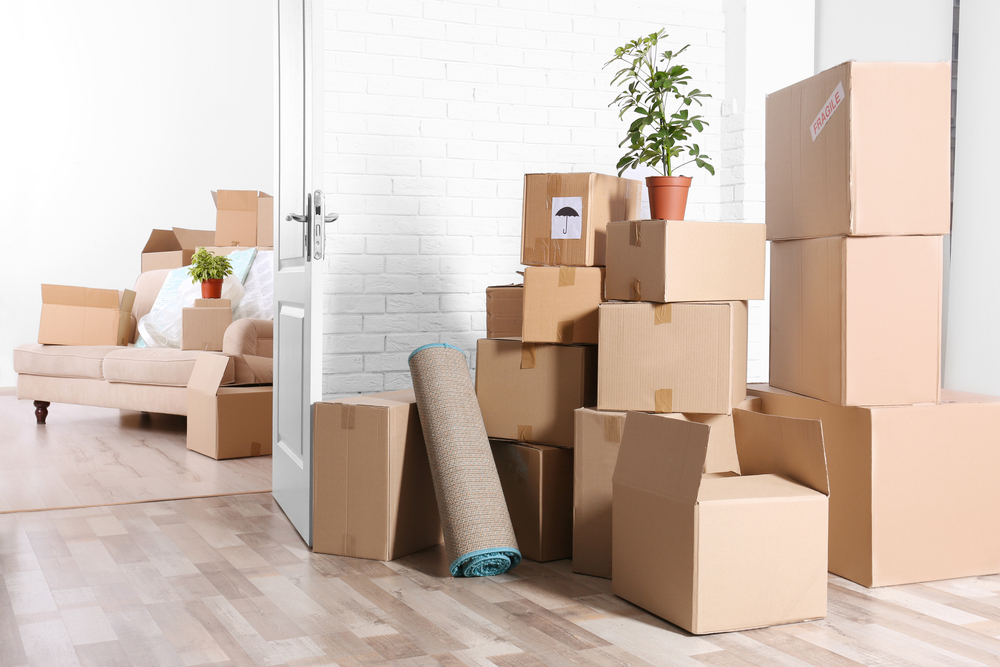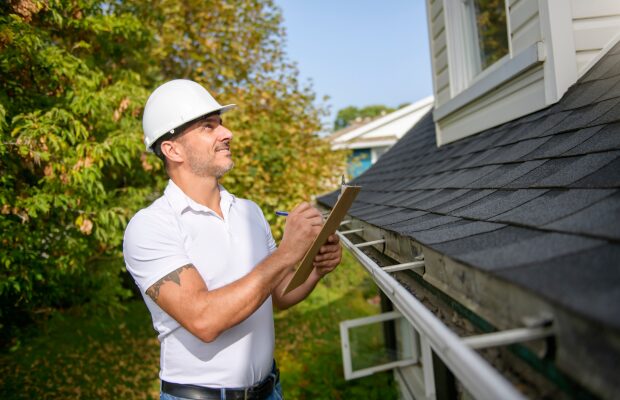The cost of moving house can be substantial – and there’s a long list of fees and expenses you’ll need to consider.
Here, we’ll outline the major up-front costs when moving home and list the ongoing costs you’ll need to factor in, too.
What is the average cost of moving house in the UK?
The average cost of moving house in the UK has fallen to £6,700, according to data from Which?
It’s estimated the stamp duty ‘holiday’ has saved movers up to £4,000, but with the savings coming to an end, the average cost of moving looks set to increase once again.
What costs are associated with moving?
When moving, you’ll need to factor in a host of up-front costs, as well as a number of ongoing expenses to protect and run your new home.
You should consider these up-front costs:
• Stamp duty
• Your deposit
• Mortgage arrangement fee
• Mortgage valuation fee
• Legal and conveyancing fees
• Survey fees
• Estate agent fees
• Energy performance certificate costs
• Storage costs
• Removals fees
You should also factor in ongoing costs, such as:
• Property maintenance
• Insurance policies
• Council tax
• Utility bills
• Ground rent and service charges
• Mail redirection costs
10 major up-front costs when moving home
1. Stamp duty
Stamp duty is usually one of the biggest up-front costs when moving home – although the amount you’ll pay depends on several factors.
The stamp duty ‘holiday’ introduced in the summer of 2020 meant large savings for many buyers.
With stamp duty reverting to pre-Covid rules later in 2021, however, how much you’ll pay will depend as much on when you complete your purchase as it will the cost of your home.
Here are the key points on stamp duty:
• From July 1, 2021, first-time buyers pay no stamp duty on the first £300,000 of a property’s purchase price, up to a maximum purchase price of £500,000
• Before September 30, 2021, buyers in England will pay no stamp duty on the first £250,000 of a property’s purchase price
• From October 1, 2021, buyers in England will pay no stamp duty on the first £125,000 of a property’s purchase price
• Investors or those buying second homes pay a 3% stamp duty surcharge on top of any existing rates
That means, from October 1, 2021, buyers who aren’t first timers will pay the following rates of stamp duty:
|
Purchase price band |
Stamp duty rate |
Second home / BTL rate |
|
£0 – £125,000 |
0% |
3% |
|
£125,001 – £250,000 |
2% |
5% |
|
£250,001 – £925,000 |
5% |
8% |
|
£925,001 – £1.5m |
10% |
13% |
|
£1.5m + |
12% |
15% |
From July 1, 2021, first-time buyers in England will pay the following stamp duty rates:
|
Purchase price band |
Stamp duty rate |
|
£0 – £300,000* |
0% |
|
£300,001 – £500,000 |
5% |
Your potential stamp duty costs from October 1, based on purchase price, could be:
|
Purchase price |
First-time buyer stamp duty |
Other buyer stamp duty |
|
£100,000 |
£0 |
£0 |
|
£150,000 |
£0 |
£500 |
|
£200,000 |
£0 |
£1,500 |
|
£250,000 |
£0 |
£2,500 |
|
£300,000 |
£0 |
£5,000 |
|
£400,000 |
£5,000 |
£10,000 |
|
£500,000 |
£10,000 |
£15,000 |
|
£600,000 |
£20,000 |
£20,000 |
* Up to a maximum purchase price of £500,000. Properties costing more than this will be subject to standard stamp duty rates
Now read: What the stamp duty ‘holiday’ extension means for buyers and sellers
2. Your deposit
Your deposit on your new home will almost certainly be the biggest single up-front cost you commit to.
It can also be the toughest cost to save.
According to the Halifax, the average deposit a first-time buyer needs to save in the UK rose to £57,000 in 2020.
Whether you have your deposit saved, or you’re using equity from the sale of your current home, you’ll generally need to put down a deposit of at least 10% of your new home’s purchase price.
For first-time buyers, a 5% deposit is sometimes enough if you’re using the Help to Buy scheme, or you’re looking to get a mortgage as part of the government’s 95% mortgage guarantee scheme.
If you’re buying with a 90% or 95% mortgage, you could be looking at the following deposit requirements:
|
Purchase price |
5% deposit |
10% deposit |
|
£100,000 |
£5,000 |
£10,000 |
|
£150,000 |
£7,500 |
£15,000 |
|
£200,000 |
£10,000 |
£20,000 |
|
£300,000 |
£15,000 |
£30,000 |
|
£400,000 |
£20,000 |
£40,000 |
|
£500,000 |
£25,000 |
£50,000 |
|
£600,000 |
£30,000 |
£60,000 |
3. Mortgage arrangement fee
Most mortgage lenders will charge an arrangement fee when you take out a loan to buy your new home.
The cost of these fees can vary, but they can be up to £2,000 depending on the type of mortgage you’re taking out.
As a rule, the lower the interest rate of your mortgage, the higher your arrangement fee is likely to be.
Many lenders will allow you to add your arrangement fee to your mortgage loan, if it’s affordable to do so.
But while this can technically remove the up-front cost, you should remember that adding the fee to your loan means you’ll pay interest on it over the term of your mortgage.
4. Mortgage valuation fee
Before your lender agrees to loan you the mortgage to buy your home, they’ll need to be certain that the property is worth at least the amount of money they’re lending you.
So, your lender will carry out a valuation of the property – for which there is a fee.
Mortgage valuation fees can vary in cost and the amount you’ll pay is usually relative to the size of the property you’re buying.
With that in mind, expect to pay anywhere between £150 and £800 up front.
5. Legal fees
You need a solicitor to carry out the legal work on your property purchase – and sale if you’re selling your existing home.
Solicitor fees often vary depending on the value of the properties you’re buying and selling and the complexity of the work required.
Often, leasehold properties like flats and apartments are more complicated legally, so legal fees for these are often more costly.
You should expect to pay between £800 and £1,500 to your solicitor or conveyancer, but you should also factor these additional search costs:
• Bankruptcy search
• Land Registry fees
• ID verification fee
• Local authority searches
• Water and drainage searches
• Environmental searches
• Money transfer fees
• Mortgage handling fee
These additional fees can total between £200 and more than £1,000, so always check with your solicitor whether they’re included in a quote or charged for on top.
6. Survey fee
When buying a property, it’s always a good idea to have a survey carried out.
This will reveal any potential problems with the property you’re buying, before you commit to actually buying it.
Survey costs vary depending on the type of survey you’re having done. The most common, and their potential costs, are:
|
Type of survey |
Potential cost |
|
Condition Report |
£400 – £950 |
|
Homebuyer Report |
£450 – £1,000 |
|
Full structural survey |
£600 – £1,500 |
The type of survey you need will depend on the age and condition of the property you’re buying:
• Condition Report: Newer homes in good condition
• Homebuyer Report: Standard properties in fairly good condition
• Full structural survey: Larger, older homes and period properties
7. Estate agent fees
If you’re selling your existing home before buying a new property, you’ll need to factor in estate agent fees to your up-front costs.
Many estate agents will charge a commission to sell your home, based on a percentage of the sale price and only payable if your home is sold.
Other agents may charge a fixed fee to market your property, which is sometimes payable even if they fail to find a buyer.
Make sure you’re totally clear on how your estate agent’s contract and fees work before you sign up.
8. Energy performance certificate costs
In order to legally sell your property, you need to have a valid Energy Performance Certificate (EPC).
EPCs are valid for 10 years, so if you have one that’s within its expiry date, you won’t have to have a new assessment carried out.
If you don’t have a valid EPC, however, you’ll need to book an assessor, which usually costs between £60 and £120 depending on the size of your property.
9. Storage costs
Moving out of your existing property and into your new home on the same day can be stressful.
So, it’s no surprise to see more and more buyers opting instead to put their belongings into storage before moving into their new home a few days, or weeks, later.
Storage costs will depend on the number and size of belongings you’re looking to store and how long you want to store them for.
However, storage is a competitive space, so you can often negotiate and secure a good deal if you shop around.
10. Removals fees
Removals companies often get booked up well in advance, so ensure you start shopping around well before your moving date.
Removals is also a competitive sector, so don’t be afraid to haggle when shopping around for a good firm.
The amount you pay in removals fees will depend on the size of the lorry needed to transport your things and the distance between your old home and your new one.
Post-moving day costs
1. Ongoing property maintenance
Even with the safety net of a survey, there’s a chance your new home may require some early maintenance to make it work for you or to fix any problems.
You should factor in some costs shortly after moving into your property to undertake any work required, while also considering ongoing costs to keep your new home in good condition.
2. Insurance policies
If you’re buying your new home with a mortgage, your lender will almost certainly insist you have a buildings insurance policy in place.
This protects your home (and your lender’s money) against damage or destruction from fire, flood or break-ins.
You could also consider other insurance policies, such as:
• Contents insurance – to protect your belongings from damage or theft
• Life insurance – to cover your mortgage and protect your family should you pass away during your mortgage term
3. Council tax
Council tax is an important cost to factor into your annual property budget.
How much council tax you pay will depend on your local authority’s banding rates, but the band your home falls into is based on how much the property was worth on April 1, 1991.
For properties built after April 1, 1991, the Valuation Office Agency (VOA) will assess it to determine which band it falls into, taking into account:
• The size of your property
• Its layout and character
• Its location
• How it compares to other similar homes in the area
4. Utility bills
Utility bills you’ll need to factor in when moving home include:
• Electricity
• Gas
• Water and sewerage
• Broadband
The cost of electricity and gas, in particular, could increase or decrease compared with your previous home depending on the size of your new property and its energy efficiency.
5. Ground rent and service charges
If you’re buying a leasehold property such as a flat or apartment, you may need to pay annual ground rent and a service charge.
Ground rent is payable to the building’s freeholder to occupy the land your leasehold property is built on.
Service charges, meanwhile, cover the freeholder’s costs for maintaining land and the common areas of the building.
Ground rent can vary depending on the freeholder, so you could expect to pay anything between £10 and several hundreds of pounds annually.
Service charges are usually between £1,000 and £2,000 a year, although this can vary.
6. Mail redirection costs
Mail redirection can be a great way to ensure none of your post goes to your old address once you’ve moved out.
The cost of mail redirection depends on the number of people who need their post to be redirected, where the mail is coming from and how long you want to redirect for.
Royal Mail’s redirection service starts at £33.99 all the way up to £249.99.
What is the least expensive way to move?
Although the up-front costs associated with moving home are often substantial, there are ways you can make savings:
• Shop around for quotes when looking for solicitors, removals firms or storage companies
• Move at a quieter time of year for removals companies, such as the autumn or winter, when they may have deals on
• Sell the things you don’t need to save money on removals
• Move home yourself by hiring a van or lorry which can often be cheaper than hiring a removals company
Further reading…
• What to consider before buying a family home




